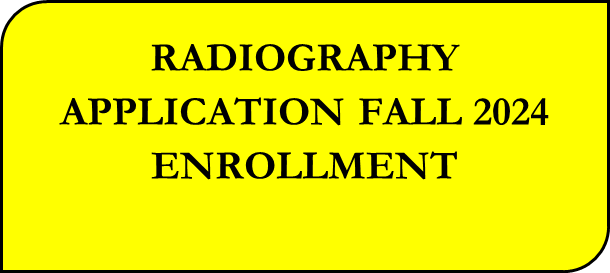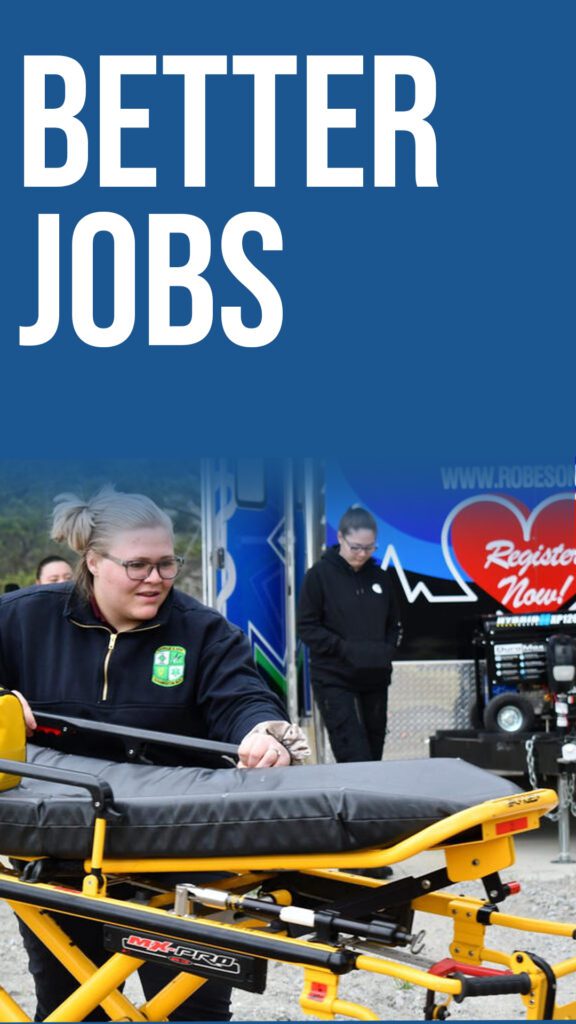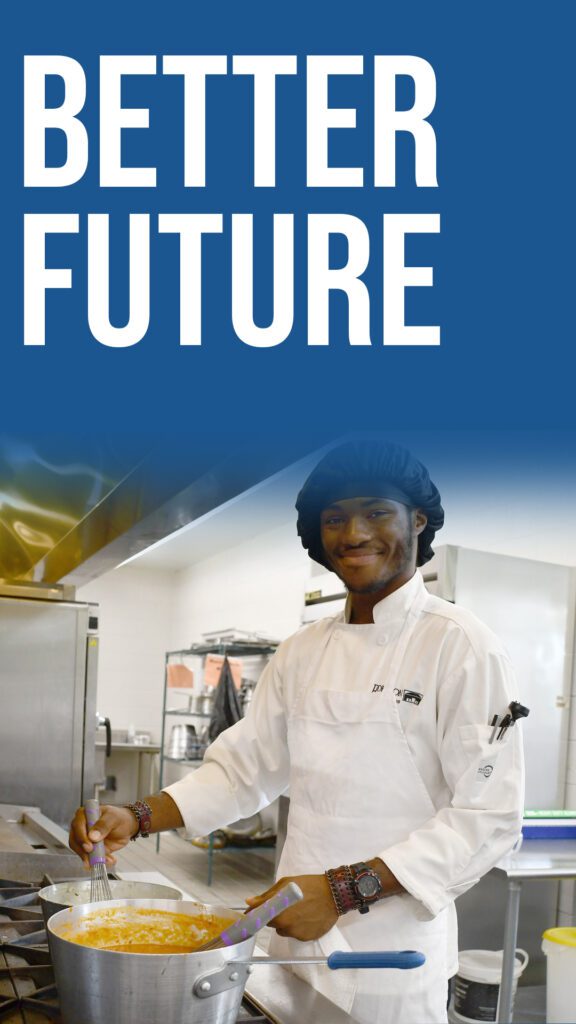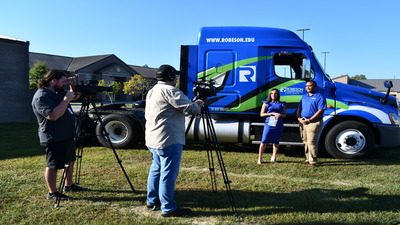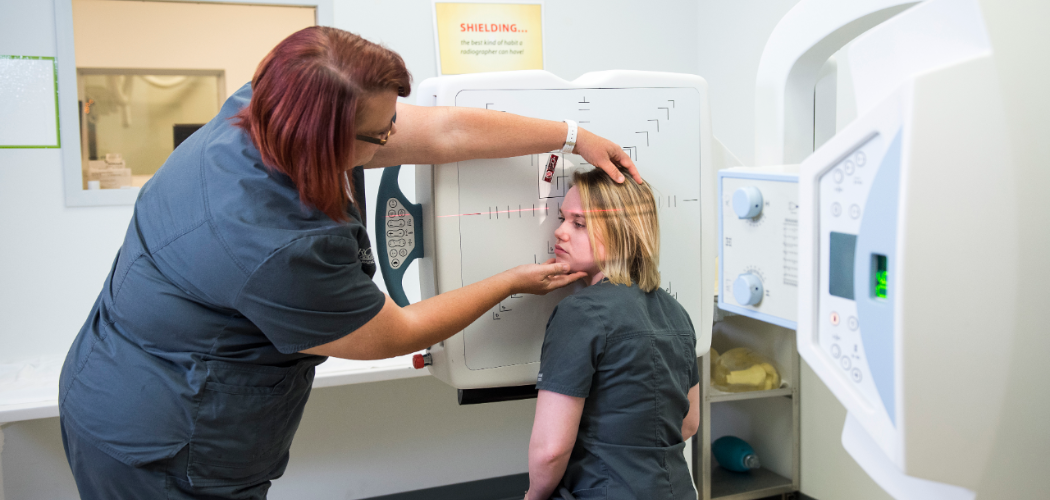
Radiography
In 2005, Robeson Community College adopted a two-year degree program for students interested in obtaining an Associate of Applied Science in Radiography. Our program′s mission is to provide students with the professional knowledge and technical skills needed to deliver patient care in a diverse community.
The Radiography curriculum prepares the graduate to be an entry-level radiographer, a skilled health care professional who uses radiation to produce images of the human body.
Course work includes clinical rotations to area health care facilities, radiographic exposure, image processing, radiographic procedures, physics, pathology, patient care and management, radiation protection, quality assurance, anatomy and physiology, and radiobiology.
- Overview
- Programs of Study
- Faculty & Staff
- INFORMATION SESSIONS
- Program Costs
- Career Outlook
-
Graduates of accredited programs are eligible to apply to take The American Registry of Radiologic Technologists’ national examination for certification and registration as medical radiographers. Graduates may be employed in hospitals, clinics, physicians’ offices, medical laboratories, government agencies, and industry.
Salary
Entry Hourly Wage: $24.05 (Information Source: Bureau of Labor Statistics)
Additional Information Bureau of Labor StatisticsPost-graduate training opportunities are available in other imaging modalities: Magnetic Resonance Imaging (MRI), Computed Tomography (CT), Ultrasound (US), Nuclear Medicine (NM), Mammography, Interventional Radiography, and Radiation Therapy.
- Clinical Obligations
-
The Radiography Program provides learning opportunities for students in an array of clinical learning environments. The clinical experiences range from imaging centers, orthopedic offices, and medical office groups, and from small to large hospitals. Clinical rotations are assigned so that each student has the opportunity to experience a variety of equipment and imaging procedures essential for the ARRT clinical competency requirements.
Second-level students have the opportunity to self-select a rotation in an advanced imaging modality. Students may request a clinical rotation in the following advanced modalities: Computed Tomography, Magnetic Resonance Imaging, Nuclear Medicine, Sonography, Vascular Imaging, Radiation Therapy, and Mammography. Program staff reserve the right to approve a student’s request to participate in an additional clinical rotation through an alternate modality of interest based upon the student’s progression on their required ARRT clinical competencies.
Students will be required to travel up to 70 miles to participate in their clinical assignments. This mileage is calculated from the RCC Campus. Therefore, it is very important that students have a valid driver’s license and reliable transportation. Program staff will not make exceptions or adjustments in clinical assignments based upon traveling distance.
Students must be eligible to rotate through all clinical sites listed below.
Clinical sites include:
- Allen Orthopedics- Lumberton, NC
- Southeastern Orthopedics- Lumberton, NC
- UNC Southeastern Health- Lumberton, NC
- UNC SE Health- Pembroke Urgent Care- Pembroke, NC
- UNC SE Health- Southeastern Radiological Associates- Lumberton, NC
- Columbus Regional Healthcare System- Whiteville, NC
- Scotland Health- Laurinburg, NC
- Cape Fear Valley Health- Fayetteville, NC
- CFV- Bladen Healthcare- Elizabethtown, NC
- CFV- Hoke Healthcare- Raeford, NC
- Dillon Family Medicine- Dillon, SC
- Emerge Ortho-Shallotte, NC
- Advanced Imaging- Whiteville, NC
- Advanced Imaging- Leland, NC
Equitable Learning Opportunities- Mammography Rotations Policy
The program will make every effort to place a male student in a mammography clinical rotation if requested; however, the program is not in a position to override clinical setting policies that restrict clinical experiences in mammography to female students. Male students are advised that placement in a mammography rotation is not guaranteed and is subject to the availability of a clinical setting that allows males to participate in mammographic imaging procedures. The program will not deny female students the opportunity to participate in mammography rotations if clinical settings are not available to provide the same opportunity to male students.
The program’s policy regarding the placement of students in mammography clinical rotations to observe and/or perform breast imaging may also be applied to any imaging procedures performed by professionals who are of the opposite gender of the patient. Adoption of this policy regarding student clinical rotations in mammography is based on the sound rationale presented in a position statement on student mammography clinical rotations adopted by the Board of Directors of the Joint Review Committee on Education in Radiologic Technology (JRCERT) at its April 2016 meeting. The JRCERT position statement is available on the JRCERT Web site, www.jrcert.org, Programs & Faculty, Program Resources.
- Mission Statement
-
The mission of Robeson Community College’s Radiography program is to provide students with the professional knowledge and technical skills needed to deliver excellent patient care in a diverse community.
- Program Goals
-
Program Goal #1: Students will be clinically competent.
- Students will apply accurate positioning/procedural skills.
- Students will recognize anatomy on radiographic images and select appropriate technical factors
Program Goal #2: Students will use critical thinking and problem-solving skills.
- Students will recognize accuracy of positioning in descriptions of radiographic appearance of images.
- Students will use problem solving skills to generate possibilities through quantitative reasoning
Program Goal #3: Students will be able to communicate effectively.
- Students will employ oral communication skills.
- Students will demonstrate written communication skills
Program Goal #4: Graduates will meet JRCERT benchmarks for program effectiveness.
- Graduates will pass the ARRT exam on the first attempt.
- Students will be employed or continuing their education in the Radiologic Sciences within 12 months post-graduation.
- Students will complete the program within 2 years.
- Graduates will be satisfied with their education.
- Employers will be satisfied with new graduates’ performance.
- Program Effectiveness Measures
-
Radiography Program Effectiveness Data
The RCC Accredited Program Details can be accessed via the JRCERT website at:
jrcertaccreditation.org - Accreditation
-
The Radiography program at Robeson Community College was re accredited in 2022 for a period of 8 years by:
Joint Review Committee on Education in Radiologic Technology (JRCERT) (www.jrcert.org)
20 Wacker Drive, Suite 2850
Chicago, IL 60606-3182
(312)704-5300
Email: mail@jrcert.org
- Associate in RADIOGRAPHY (AAS)
-
The Radiography curriculum prepares the graduate to be a radiographer, a skilled health care professional who uses radiation to produce images of the human body. Course work includes clinical rotations to area health care facilities, radiographic exposure, image processing, radiographic procedures, physics, pathology, patient care and management, radiation protection, quality assurance, anatomy and physiology, and radiobiology.
Find more information about Loading….
The Radiography AAS degree is a 76-credit hour program. There is a basic core of 43 credit hours. The program also consists of 23 general education credit hours.
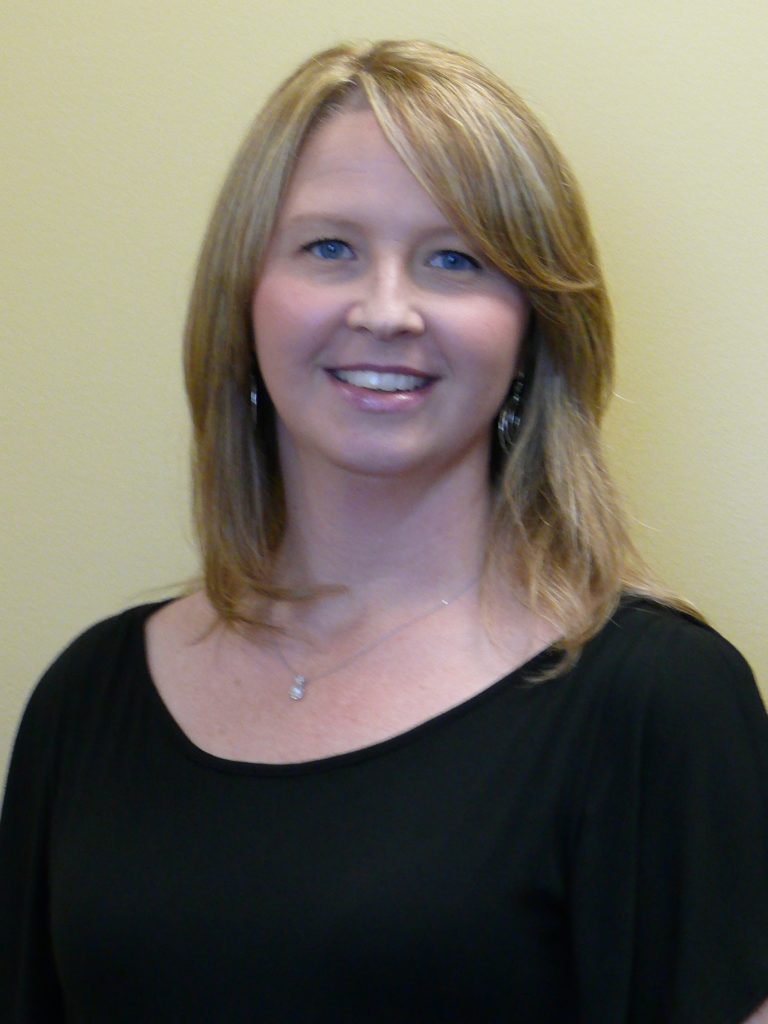 |
Radiography Program Director | Building 17
Email: cward@robeson.edu
Phone: (910) 272-3409
|
HESTER, WHITNEYClinical Coordinator | Building 17 |
|
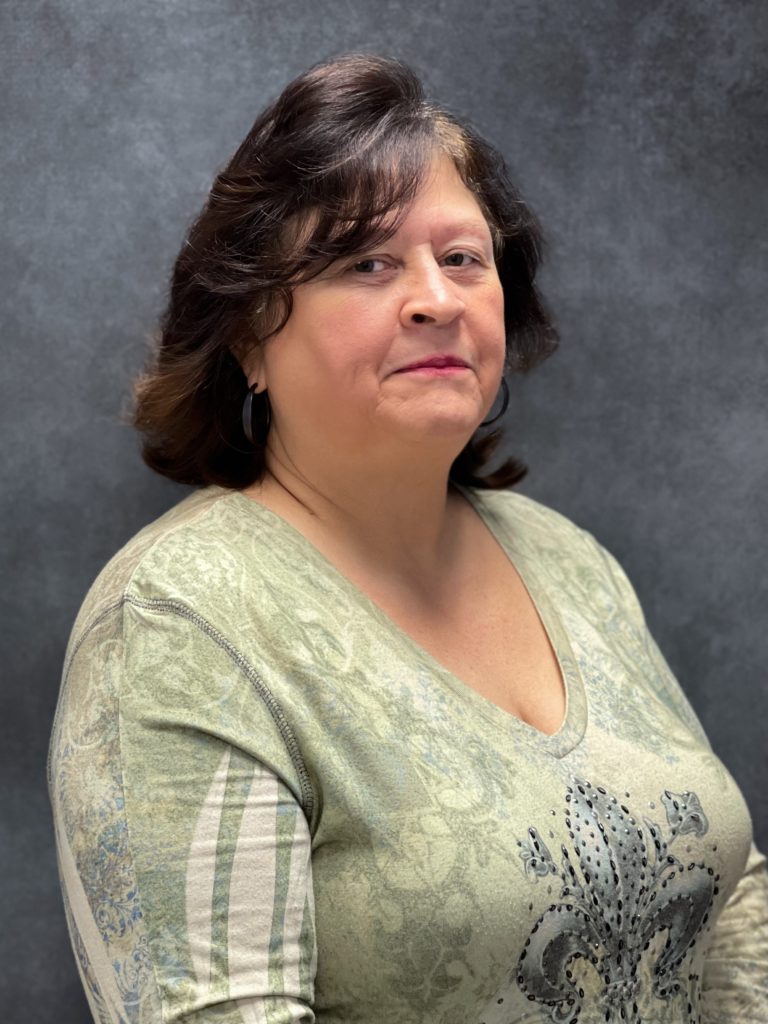 |
OXENDINE, FELECIAExecutive Assistant | Building 17
Email: foxendine@robeson.edu
Phone: (910) 272-3395
|
FALL 2024 INFORMATION SESSIONS
- Friday, September 20, 2024, 9 a.m.
Building 17, Radiography Classroom, 1736A - Wednesday, November 13, 2024, 3 p.m.
Building 17, Radiography Classroom, 1736A
SPRING 2025 INFORMATION SESSIONS
- Friday, January 17, 2025, 9 a.m.
Building 17, Radiography Classroom, 1736A - Wednesday, March 12, 2025, 3 p.m.
Building 17, Radiography Classroom, 1736A
All information will be covered during the one Information Session, so there’s no need to attend multiple days.
Seating is limited. You must Candice Ward at cward@robeson.edu to reserve your seat. This also allows Radiography staff to communicate any changes in dates or times with those who have reserved a seat in the event a change needs to be made.

